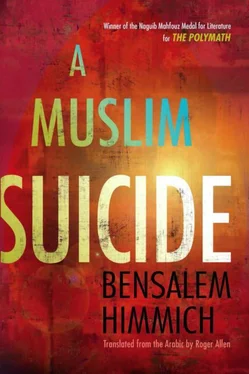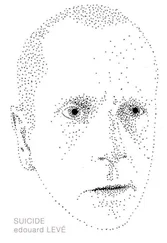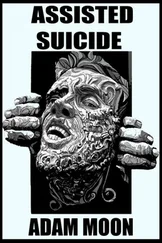What a cartload of complexes this man had, I thought to myself, pile upon pile of disaster! 0 God, how was I supposed to lighten his burdens?
Where was I to locate the origin of his deep wound, the nub of his sorry tale, and the fulcrum of its intolerable burden?
How was I supposed to detect something that he himself did not know? The only one who knew was his Creator.
I asked him if he really wanted to be cured or not.
He responded that he certainly did want to be cured, but a real cure, not some illusory pseudo-cure. He had endured the latter several times, and the only consequence had been a terrible relapse and a desire to end his life.
"Then promise me," I told him, "that you'll respect your own right to life and think positively about a cure. Do that and leave the rest in my hands. They have God as a wise mentor."
He promised and swore an oath on it. I summoned the superintendent, and in the warden's presence had him remove the restraints from the patient and bring him some food. He dithered a while, but, once I had yelled, "So what do you think this place is supposed to be, a hospice or a death-trap?" he did as I asked and ate. After a while he straightened up and, with a smile on his face, started rubbing his hands and legs. He began to eat, slowly and carefully. I suggested that he take a walk in the courtyard in an hour and promised to pay him another visit the next day. He started raining kisses on my hand, but I withdrew it and leaned over to give him a hug. I signaled to the stupefied warden that he should take me to the second man's cell. Once he had escorted me there, he told me he had things to attend to concerning the hospice's facilities. I told him that, once I had finished with this second visit, I preferred to make my way back to the zawiya on foot. With that I said farewell.
I entered the old man's cell. He leapt up to greet me and invited me to sit on his floor-mat. He was really old, with no hair or teeth; he had a bushy white beard, and his deep-set eyes radiated vestiges of a spark in the midst of a face that was otherwise furrowed and worn. His body consisted of a set of bones that clung to his veiny skin. He told me the various names he had had, all in accordance with the different phases in his adherence to a particular faith that he had subsequently left. The most recent, he told me, was derived from the leader of the Greek skeptics, Pyrrho* the doubter. He insisted that he would only demand a little of my time. All he wanted was to hear my opinion on the position to which his own existentialist thinking had brought him. Contrary to what everyone else thought, he believed in such things. Not only that, but he had full enjoyment of his faculties and was in complete control of his mind.
"My son," he told me, "for a long time I've been promising myself and those around me to devote the final word to God Almighty, provided that a sudden demise does not prevent me from doing so. But before such a promise could be fulfilled, I've had to take on a number of other projects and a crucial and complex problem that I've wanted to solve. However-more's the pity-I've managed to achieve neither. Faced with a succession of failures, I've adopted the following as my oft-repeated slogan: `You must turn the page.' In the final analysis my entire life consists of nothing more than a whole series of turned pages.
"As my life now draws to its close and I find myself chewing invisible grass, I can claim with considerable confidence that life consists of one long series of ruptures, or rather complete disjunctures, that manage to convert mishaps and failures into whole clusters of consequences and reckonings. For that very reason I choose to shout out to anyone who wishes to hear, and with a great deal of conviction and enthusiasm: `Life is undeniably devoid of meaning. It is thus the duty of every individual to draw the necessary logical deductions from such a premise.
"My personal beliefs are beset by doubt. Here I am, living a contemptible existence and-something that is both weird and rare-telling my enemies and counselors alike, `On the day when, if only for a microsecond, I see a fresh corpse giving me a wink or else-if you prefer-using rude gestures, at that point I'm prepared to swear to you on my mother's grave or in the name of all the pious saints that I will take up my faith once again and without delay. Is there anyone out there to take up such a challenge?'
"As I lie in this place awaiting my death, here is what I am prepared to state with total conviction: `Much as I despise people who make a big show of their religious beliefs and live it up even though they are old and decrepit, so do I admire people who manage to discover God for themselves and through their own endeavor while their life is still ahead of them. These latter people-and you are undoubtedly one of them-live their own life-stories with the Almighty as one enormous spiritual adventure, an experience that can be at turns boisterous or serene. On the other hand the former distort their relationship with Him, turning it into a personal set of concerns, a feeble penance, if you will, a kind of penitential gargle, the goal being to assure an interest-bearing deposit or insurance for the world to come."
By way of conclusion, the old man proceeded to pose me a direct question, with no long-winded prelude, noting as he did so that he did not expect any answer nor did he need any thanks.
"Isn't this lower world of ours, with its waters and clay, supposed to exist with the least amount of pain and grief, of vanity and hurt, that is feasible? A contemporary of Abu Hayyan al-Tawhidi once asked him with tears flowing down his cheeks, `What wisdom can there be in the suffering of children or mindless animals?' Or perhaps now that you have seen the conditions inside this asylum, you yourself may wish to ask the question as to what is the point of torturing the demented and insane? That man, al-Badisi, whom you just saw, poor, wretched, and disturbed soul that he is! Did you but know it, there are many, many more people here just like him. If you investigated their stories inside this jail one by one, you would find yourself spending months, indeed years; you might not be able to avoid the contagion that is rife around here-but God prevent any such thing! So, my dear son, leave here with your mind still sound and do not burden yourself with any more questions than those you yourself have experienced and addressed. Go back and leave me to live out my life with my doubts, my black insects, vermin that will not leave me alone whether I plunge into water or explore matters in detail. If your Lord had wished to rid me of them, He would already have done so. Leave in hope then. You have no solution for me, nor does anyone else."
Without saying a word I kissed the old man's head.
"So, `Abd al-Haqq," he asked me with a smile, "do you smell in me the foul stench of heresy?"
I gestured that I did not, then left the room after bidding him farewell. In the corridor one of the older residents stopped me. "So, dear sage," he said in a feeble, despairing tone, "even you will counsel me to remain steadfast in resisting evil. But what can a poor devil like me say when he has gone to extreme lengths in his indulgence in both evil and endurance?"
That said, he turned around and left without waiting for the benefit of my wisdom on the subject.
As I left the asylum, the things that I had witnessed were making my head spin, even though they were obviously just the tip of the iceberg. Equally disillusioning was the impotence I had experienced in the face of so many images of human misery.
I promised al-Badisi to go back and see him, but what was the point when it occurred to me that I should have been urging the man named Byron to question his own doubts but had decided not to do so out of modesty and respect for his avoidance of argument and preaching? How was I supposed to behave any other way, when in this regard the only difference between the two of us lay in the fact that the downturns and trials in his life had led him to believe that man was made from dust and returned to it, just as chemical compounds are reduced by dissolution. For my part I was and still am involved in my own emotional flights, my intellectual contemplations, and my mystical fantasies, seeing the spirit exempted from such an outcome and wagering its redemption and resurrection after death.
Читать дальше












